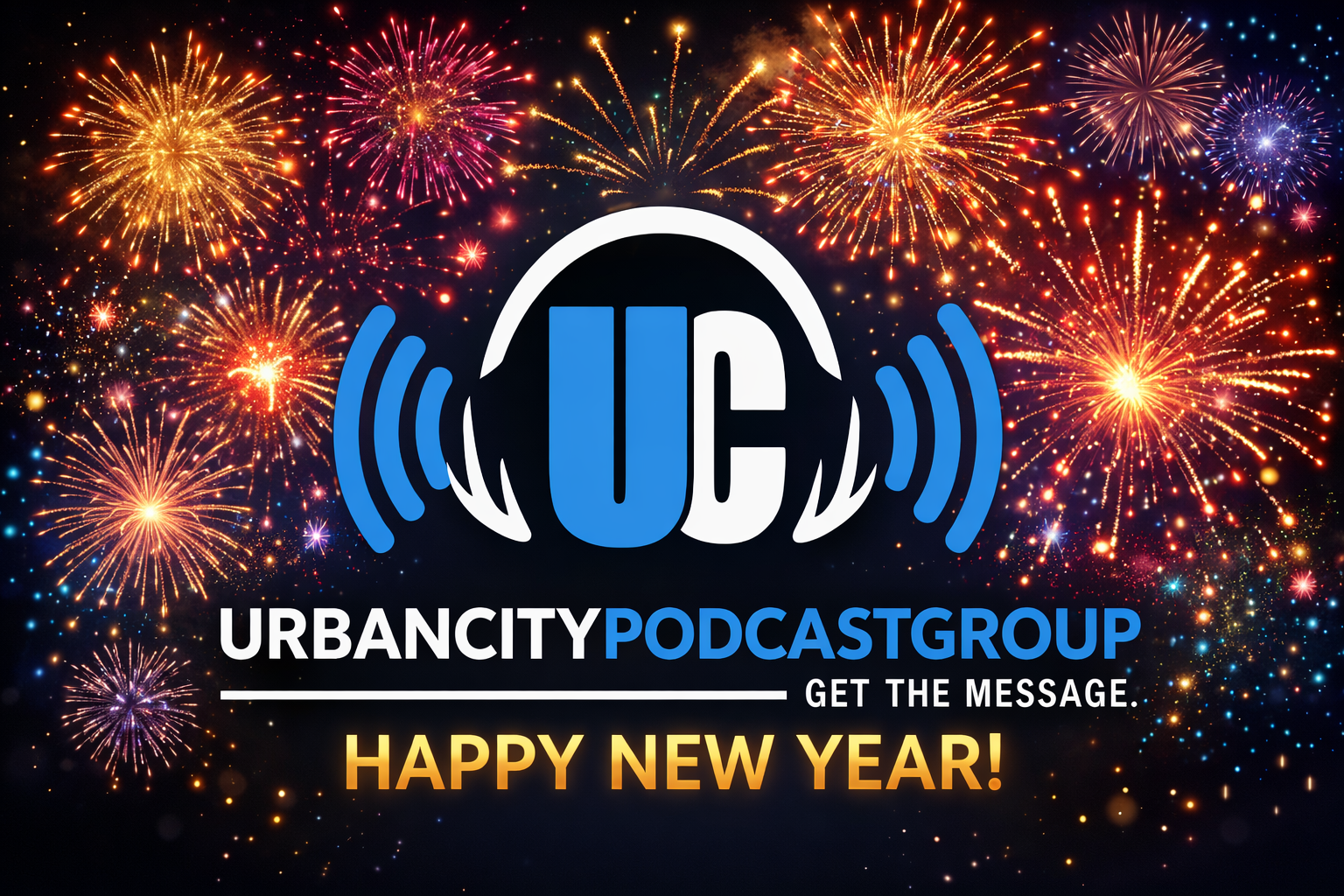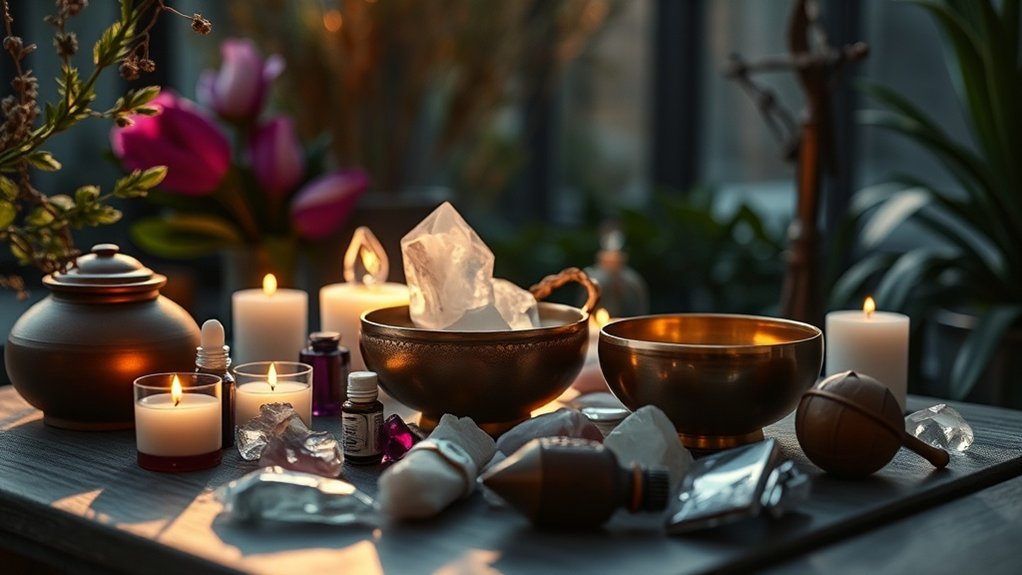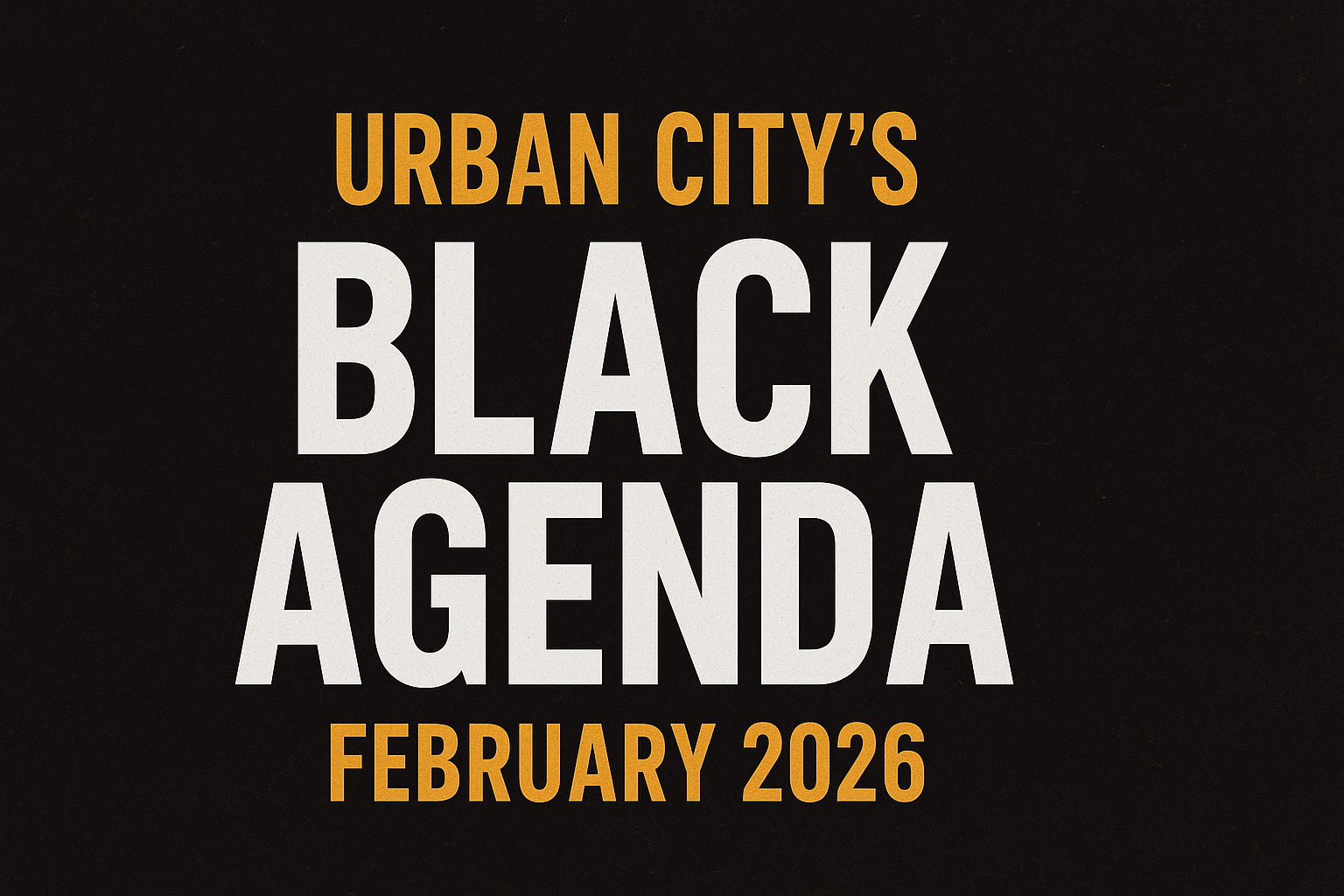Key Takeaways
- Energy work and alternative healing methods, such as Reiki, sound therapy, and chakra balancing, help relieve stress and emotional burdens.
- These practices focus on the vibrational frequency of your being to promote healing and growth.
- Exploring the connection between ancient wisdom and modern lifestyle solutions can inspire personal transformation.
The Power of Vibrational Healing
Imagine the soothing rhythm of energy harmonizing through your body like a gentle river. Energy work and alternative healing methods such as Reiki, sound therapy, and chakra balancing can uplift you by relieving stress and emotional burdens.
These practices investigate the vibrational frequency of your being, encouraging healing and growth.
Curious about how aligning your energy can enhance your well-being? Explore the intersection of ancient wisdom and modern lifestyle solutions that inspire transformation.
Chakras and Aura Healing
Sometimes, tapping into ancient wisdom can reveal doorways to wellness you never knew existed.
Understanding chakra alignment and aura cleansing can transform your approach to physical and emotional health. Dr. Valerie Hunt’s study at UCLA discovered that chakras emit unique frequency patterns, with correlations to aura colors, creating a measurable energetic field around you. These frequencies relate to spiritual and emotional states. High-frequency vibrations, often found in healing practitioners, promote balanced chakras and a cleansed aura. Conducting experiments that involved detecting emissions from chakras, another researcher found high-frequency oscillations and light emissions correlated with concentration on specific chakras. Chakras correspond to vital physiological systems, meaning their alignment impacts your well-being.
Techniques like meditation and sound healing optimize this balance by influencing brain areas tied to self-awareness. Imagine empowering your community with this insight, nurturing wellness from within.
Reiki Growth
- Its integration into medical environments where it supports traditional treatments.
- Reiki impact is felt in diverse cultures, with its universal approach to life energy.
- Growth of training programs that help preserve its traditions and expand reach.
Reiki emphasizes five ethical principles, promoting peace and mindfulness, adding to its charm.
It’s now commonly seen across wellness centers, bridging cultures and encouraging holistic health.
You’re part of this incredible global exploration.
Sound Therapy
Sound therapy, an ancient and soul-soothing practice, resonates with communities adopting alternative healing methods. You might find this approach fascinating—it taps into brainwave entrainment and vibrational resonance to enhance well-being.
Tibetan singing bowls, beloved for their serene tones, help balance your energy centers, or chakras, releasing tension and boosting vitality. Feeling stressed? A session can lower anxiety, improve sleep, and even ease pain.
Imagine the didgeridoo’s deep sounds used for over 40,000 years by Australian Aboriginal tribes—it’s powerful not just audibly but spiritually. Research shows these low-frequency sounds can modulate your mind’s relaxation states, aiding emotional healing.
Envision pairing this with deep breathing or visualization techniques for even better mental clarity and emotional balance. Engage with sound—it’s transformative!
What Science Supports
Though the world of alternative healing might seem mystical, science does have something to say about it, and you might find it quite intriguing.
Scientific studies have explored different healing modalities like Reiki and Reconnective Healing. These studies mightn’t be conclusive, but they do offer glimpses into potential effects.
- Physiological changes: Some research on Reconnective Healing and Reiki shows changes in heart rate variability and autonomic nervous system markers.
- Pain relief: In Reiki studies, people noted potential benefits for acute and chronic pain, despite some methodological limitations.
- Psychological impact: Reports suggest a reduction in stress and anxiety, although definitive data remains elusive.
Holistic wellness promotes thriving in physical, mental, and emotional health, highlighting the interconnected nature of these aspects for comprehensive well-being.
These findings are just a start. Stay curious and open-minded; future research may unravel more about these healing modalities.
Why People Turn to It
While modern medicine holds undeniable value, you’re not alone when you feel drawn to more holistic ways to boost your well-being.
Increasing consumer preference for holistic approaches underscores alternative healing’s meteoric rise, particularly in North America. You yearn for something beyond the clinical, seeking mindfulness, yoga, or energy healing like Reiki to reduce stress.
Cultural and spiritual influences play a vital role. Maybe it’s a quest for meaning, or these practices resonate with your spiritual values. People often find that tapping into spiritual resources fosters deeper emotional resilience and mental health.
Urban communities brim with diverse healing traditions, blending conventional and alternative methods. Accessibility’s on the rise too, thanks to online platforms and telehealth, making personalized care more reachable.
By integrating spiritual practices into daily life, individuals often find a more profound sense of peace and personal fulfillment.
Alternative healing is more than preference—it’s an empowering lifestyle choice.
Assessment
You’re now ready to vibrate at higher frequencies, mastering chakra balancing like a pro juggling planets.
Think of Reiki as your community’s magical reset button—less “alakazam!” and more about reclaiming your mojo.
Picture sound therapy as your personal DJ, crafting beats that groove with your aura.
Science gives a nod, acknowledging this mystical blend with a tip of the hat.
Folks dive into energy work not just for stress relief, but for a cultural awakening.
It’s the new wellness anthem, especially in urban communities.












